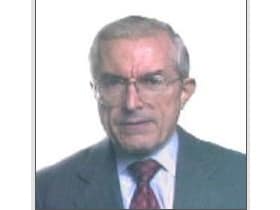
How Dangerous Is Common Sense to Managers?
In predicting outcomes and acting accordingly, we give far too much credence to such things as our own experiences, our ability to determine what is important, and history itself
Some of the more interesting writing that is relevant to management these days is found in out-of-the-way places in my local bookstore. In addition to the management and economics sections, you should check out neuroscience, psychology, and sociology--the research being reported there on how the mind and body work is thought provoking.
For example, in Everything is Obvious, Once You Know the Answer: How Common Sense Fails Us, sociologist Duncan Watts' thesis is that, in predicting outcomes and acting accordingly, we give far too much credence to such things as our own experiences, our ability to determine what is important, and history itself—mainly because complex phenomena are based on events that never repeat themselves and can't be examined scientifically. Once we know the outcome of a situation, we rationalize the reasons why it occurred and convince ourselves that we've learned something from it that we can use in making future decisions. As a result, we give unwarranted credit to such things as experience, intuition, and even common sense.
Watts challenges our ability to assess the validity of experiences on which common sense is based, thereby raising the question of whether common sense based on accumulated experience can be of any help to decision-makers forced to predict the future in complex situations. Watts questions much of the recent work that purports to identify causes and effects in complex, unique situations involving such things as tipping points and many of the phenomena examined by the Freakonomists. In fact, nearly all writing about management and behavioral economics that seeks to credit performance to one cause or another is suspect. Anything based on this faux knowledge, including our common sense, is challenged.
If this research were valid, Watts argues, why wouldn't we be able to predict the success of a strategy, a new disruptive technology, a product, or an advertisement? The reasons he gives are that these phenomena are too complex, involving so many variables that they can't be repeated or even tested effectively. (The Vanguard Group's founder, John Bogle, has been arguing this for years, concluding that mutual funds are more successful when they are not managed.)
What are we to do? According to Watts, it may mean confining our use of common sense to everyday routine decisions for which recent experience can truly be helpful, such as the best route to take to work to avoid traffic. Newer technologies such as the Internet, social networks, and specialized hardware may come to the rescue by providing easy ways of surveying customers, testing product features, and conducting business experiments. Rapid-response systems may, in some cases, eliminate the need to predict the future by allowing managers to respond only to events that have just occurred. A variation on this was proposed years ago by Henry Mintzberg in his critique of strategic planning when he suggested that instead of long-term planning, managers should practice "emergent" strategy formulation in which long-term predictions are replaced by efforts to better understand what is going on at present.
According to Watts, leaders run the risk of injecting too much common sense into decisions, uninformed by experimentation that could be designed to identify cause and effect. Does Watts have something here? Are too few strategies based on testing before investing? Do we make too much use of our common sense under the wrong circumstances? Do we use it unreliably to emphasize some and ignore other information? Do we give common sense too much credit for success? What do you think?
Reference:
Duncan J. Watts, Everything is Obvious, Once You Know the Answer: How Common Sense Fails Us
This article was provided with permission from Harvard Business School Working Knowledge.





